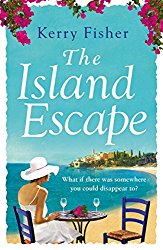As some of you know and lots of you don’t if you haven’t read my blog bio, I’m a bit of language fanatic. I can become quite fascinated by an unexpected use of a subjunctive, the rule for making a comparative – more happy or happier? – and quite the pedant about when to use ‘fewer’ and when to use ‘less’. Which, on re-reading, doesn’t make me look like the ideal person to invite for dinner unless you’re having a gathering of English teachers or other people who like to disappear into a place where the sun doesn’t shine.
Anyway, my little language antennae were twitching like a badger’s whiskers when The Times ran a feature on the importance of keeping alive minority languages, such as Cornish, Guernésiais and Manx. (It’s a fascinating article to which I’d love to be able to post a link but you have to subscribe to The Times to read). One of the brilliant points that the article made was that there are words that perhaps occur in only one language in the world but encompass a thought or a feeling that we would all like to articulate occasionally. Having lived in Spain, Italy and Corsica in my distant youth, there are still words that I have never managed to translate into a perfect English equivalent.
In The School Gate Survival Guide, my Basque heroine uses verguenza ajena, a gorgeous Spanish expression meaning ‘embarrassment at other people’s actions’, a kind of blushing on behalf of someone else, who isn’t even aware they’ve made an excruciating social gaffe. The other thing the Spaniards do well when they bump into someone they know in the street is say, ‘Hola’ if they are going to chat and ‘Hasta luego’ (See you later) if they are acknowledging you but not intending to halt their march forwards, thus avoiding the weird ‘Will they/won’t they stop to speak’ dance.
In Italy, leaving aside their lovely swear words, (as unlike my imperfect real life, I’ve made this blog a curse-free zone), my favourite is ‘fare brutta figura’ – literally to ‘make a bad figure’ – make a fool of yourself or make a bad impression. Although I’m wondering if I should revisit my self-imposed politesse because I am laughing at the fabulous Italian phrases for helping unwanted guests on their way (‘Go and poo!’ – or maybe slightly more vulgar in translation). I’m intrigued that Catholic countries tend to have swear words linked to religion, pigs and dogs where as British profanities usually refer to sex/parts of the body. I think that will have to be the subject of another blog…
In The Times’ selection of words we can’t live without, my favourites are Iktsuarpok from the Inuit language, which means going outside to check if anyone is coming to your party and Hygge (Danish) for the genial, intimate feeling of sitting round a fire with friends.
The ideas I’d like to be encapsulated in one simple word are:
- The moment you realise the dog is going to eat the picnic belonging to the woman with the proper hamper and pristine tartan rug.
- The instant you flip from annoyance at the mistake your child has made to a desire to comfort them in their distress.
- The realisation that even though certain friends always accept your invitations, they don’t actually like you very much.
- The momentary not recognising yourself in the mirror because, in your mind, you are much younger.
- That nervous patting of the face you do when you’re talking to someone and you are not quite sure whether you’ve got toothpaste round your mouth, or worse, something hanging out of your nose.
- The feeling you get when someone comes out to fix the fridge and before they get through the door, you can hear the sound of nails rasping across a chin, preceding the immortal words, ‘It’s gonna cost ya.’
- The mortification you feel when a workman moves a sofa, washing machine or bed and discovers something unsavoury beneath it.









Love this post! I often have to bite my tongue to avoid correcting people’s poor language.
Have to say your book is one of the very few I’ve read where I didn’t want to get a red pen out! I think you would get on with my friend Valerie very well. She has seven degrees and edits the Oxford English Dictionary. She is also the very definition of pedant and I love it!
Hi Vicky!
Thank you…I am a terrible pedant, endlessly interrupting my children…I must drive them mad. I love the sound of Valerie…what a great job. Is she on Twitter?! x
Yes! @oxfordwaterrat.
Brilliant…I shall follow her!